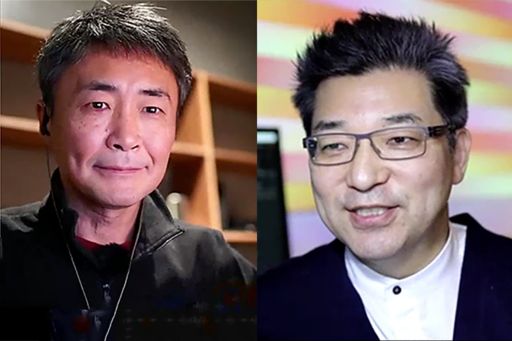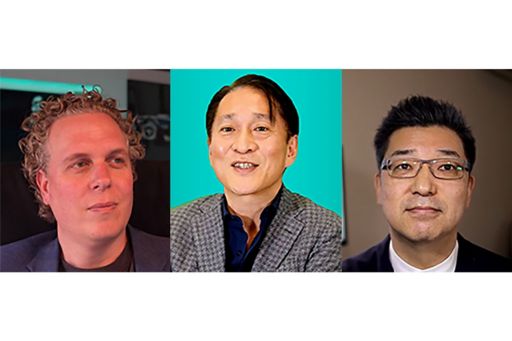Society where Digital Twins Will Become a Reality
〜We Are in a Phase of Discussing “How We Can Make Society Better” by Focusing on the Advantages and Disadvantages of Technology〜
Technologies such as IoT, AI, the cloud and 5G have become part of our lives and are spreading in our society. And now, we are beginning to feel that even the “digital twin,” which replicates real space like a “mirror” by replicating information that exists in real space in digital space, is a realistic future.
In this world where the border between digital and real is unboundedly vague, what kind of issues are we going to confront and where are we going to seek solutions?
In this article, we will introduce the discussions conducted between Masayuki Chatani from KPMG Ignition Tokyo (KIT) and Kazunori Yamauchi, CEO of Polyphony Digital Inc., which created the driving & car life simulator “Gran Turismo.”
How Will 5G that Supports e-Sports and Digital Twins Be Incorporated in Society?
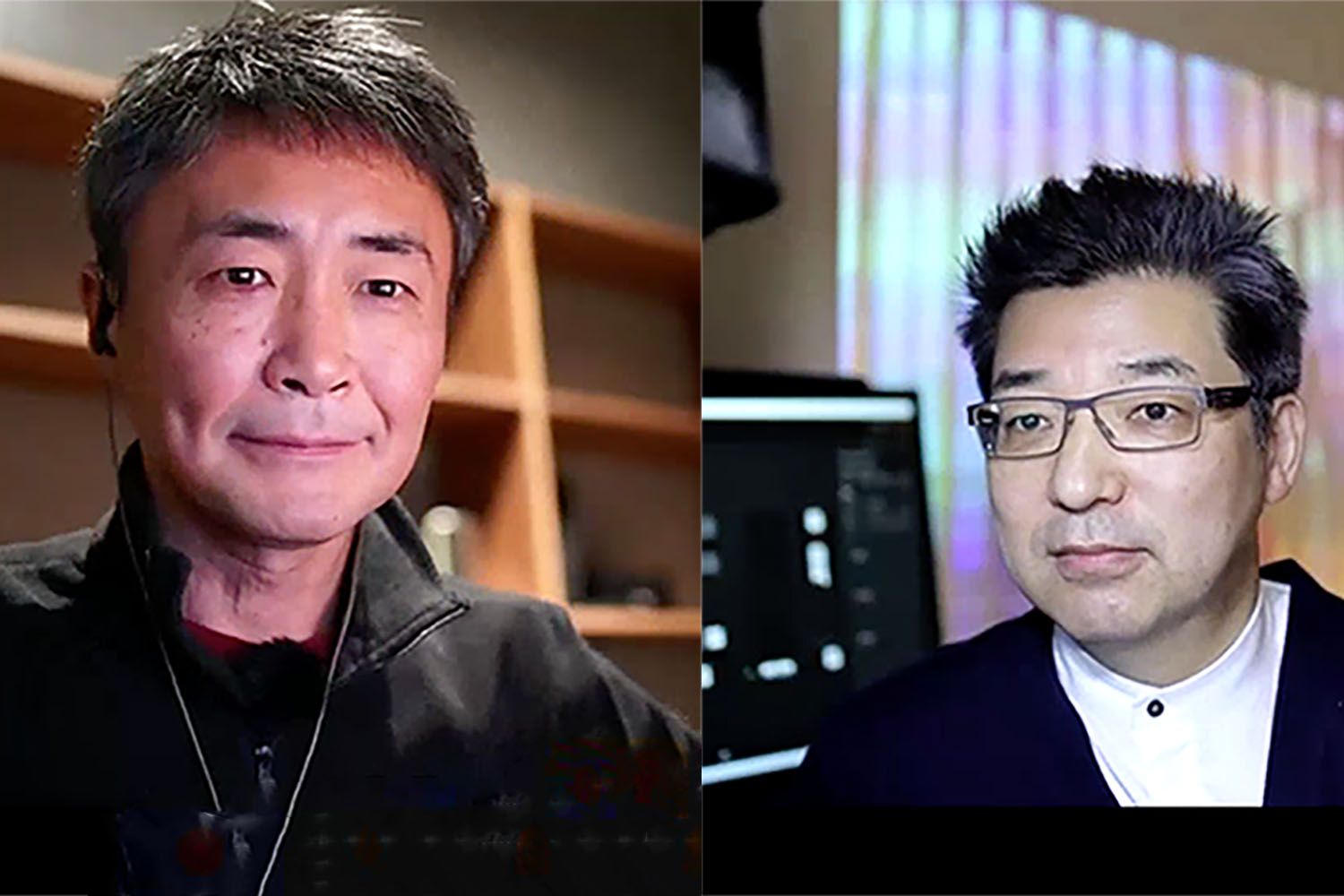
(Kazunori Yamauchi, President of Polyphony Digital Inc. (left) and Masayuki Chatani, Representative Director & CEO of KPMG Ignition Tokyo and CDO of KPMG Japan (right)) *Professional affiliation and official position in the article are at the time of publication.
Chatani: As we can see from the example of Hollywood, which I just mentioned, the ability to create a sense of being in the same space by overcoming physical distance is indeed a benefit of technology.
Yamauchi: What I would like to ask you regarding this is, “Who will invest in 5G?” 5G requires a lot of power, computational resources and memory resources on the edge side. There is also the drawback that the range covered by one base station is extremely small. It is easy to understand that quite a huge investment is necessary to cover, for instance, just the 23 wards in Tokyo.
Chatani: 5G is divided into two elements and the one that is attracting attention now has high frequency and wide bandwidth with shorter range, which has evolved discontinuously. It is therefore quite difficult to deliver it nationwide. Simply put, it is “costly.”
The implementation of 5G, I think, will advance from the approach of utilizing “local 5G,” when a large number of online connections is required at the same time, for instance, at e-Sports competitions held at a stadium. The stadiums and halls that will be built from now on will serve as locations that support local 5G, and it will be possible to perform entertainment that requires applications and a large number of connections. If so, I think your content will probably fit the best!
On the other hand, if it is utilized in the medical field, biological data will be collected. For instance, there will be an edge that processes a large amount of data including all the heartbeats of an electrocardiogram, and data that meet specific conditions will be selected and uploaded to the cloud. An alert will also be sent when a problem is detected. I think that applications will be designed by skillfully utilizing several computer layers to achieve this.
Then, when IoT devices increase, there will be many applications that utilize them. I look forward to the day when this will be realized.
Yamauchi: The future that 5G offers is indeed exciting but I feel that there are many issues to be solved beside the cost.
Chatani: You’re right. One of the issues with a high degree of risk is the rewriting of data by means of malicious attacks. This will lead to a major issue especially if this occurs to medical and infrastructure-related data, financial transactions and highly classified corporate information.
Yamauchi: This means that human beings have finally come to the stage where we must confront such issues..
How Should Technology Be Used to Make Society Better in a Society Where Technology Is Incorporated?
Chatani: I would like to talk about the “issues that will be faced by us who live in a society where technology is beginning to be incorporated,” which you just mentioned, from the different perspective of corporate management.
First of all, you yourself are developing games while being deeply involved in and trusted by the automobile industry, which seems to be far apart from your industry. Your activities are expanding outside the game industry, such as designing a cockpit for Nissan.
What I remembered from this are the words of a famous investor.
This investor was professing that he would “invest in an industry where game technology will be diverted to next.” In other words, as game technology is always on the cutting edge, industries where this technology will be horizontally deployed and applied will be the next destination for investment. Not all game companies are having an impact but I sympathize very much with the idea that the game industry is a breakthrough in society.
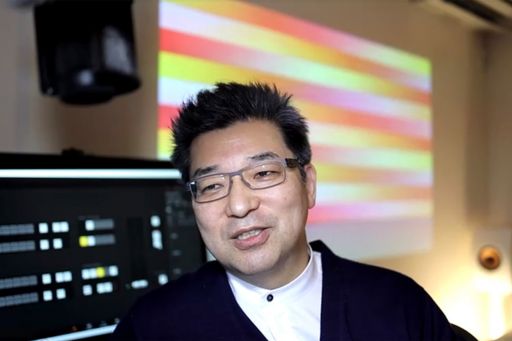
As the game industry is still an industry where Japan is strong, I hope that various industries and companies can successfully collaborate with it. I also think that this is one of the important elements that will enable Japanese companies to regain their strength.
Yamauchi: As far as corporate management goes, the messages of Polyphony Digital’s “Our Goals” are “we must be open to society,” “we want to make society happy” and “we want to quantize everything in the world and make it computable.” This concept has not changed since our foundation in 1998.
I want to use video games and technology as tools for making society better, but this will always involve certain values. This does not apply exclusively to technology but there are advantages and disadvantages in technology and I think we are at the stage where we must seriously discuss “how can we utilize technology to make society better?”
Chatani: Indeed, when technology and data are used as platforms, we are required to be more visionary. This will probably be demanded more especially of executives. When this is pursued, it will lead to the question of “what is the value of our company to society,” which, in turn, will direct their awareness toward CX (Corporate Transformation) or make them think and confront questions such as “what is a human being?” in their attempt to understand society as a whole.
Yamauchi: Going back to digital twins, which I mentioned at the beginning, so-called “smart xxx” products and services are actually appearing in various fields such as production sites, logistics and transportation systems, and infrastructure and energy, and they are individually considered to be digital twins.
When I look at this situation, I think that the changes that are about to occur in society today are at the stage where “what were considered to be like digital twins,” which had been implemented individually, are being optimized by designing and implementing architecture that connects them across multiple industrial domains. Such attempts are starting in Japan as well and the ultimate destinations also include future prediction and social transformation.
What is significant in this discussion is that “understanding of people” is included as an important piece. To understand people and predict the future: these are quite grand topics.
Chatani: We also think that being driven by envisioning and fantasizing will unlock the future and that the use of data is essential to quickly detect “the unexpected” in management. This is why digital-driven management is necessary and data is extremely important.
However, listening to what you just said, it also seems as if they are trying to model how people will behave by using all kinds of information in order to grasp the future of all things as a “plotted future.” At first glance, the two approaches to data seem to be the same but I think the reality is quite different.
Yamauchi: That’s true. What I remembered when hearing the term “future prediction” is a character called Hari Seldon in the “Foundation” series written by Isaac Asimov.
In the series, he is the founder of “psychohistory” and is able to “prove” his future prediction that the Galactic Empire will eventually fall. To save the Galactic Empire, he invents the “Seldon Plan,” establishes a foundation in a corner of the galaxy and secretly carries out his plan. I imagine that this imaginary discipline called psychohistory was conceived by Asimov, who was also a biochemist, under the influence of Boltzmann’s statistical mechanics, which predicts macroscopic results from microscopic behavior. The concept to plan, implement and optimize an architecture that connects multiple industrial domains, which is starting to be created now, indeed seemed to me like a modern, real-life version of the Sedan Plan.
In other words, the world of “future prediction,” which used to be only fantasized in science fiction stories, has been materialized to a level where concrete business possibilities are addressed with the advancement of computers, networks, big data and AI. I think this can be considered as a new foundation (worldview).
Chatani: I am always excited by science fiction and technology so I am fascinated when I hear such stories. I also think that a future where one executive supported by outstanding AI programs can manage a company can be realized. However, what is important here is “who makes the decisions” regarding concrete business propositions. Decision-making by people will play the central role for both management and social activities and the mindset that computers, networks, big data and AI are things that are utilized as tools will be indispensable.
If the final judgements are to be made voluntarily by people, do you think it will be possible to predict these judgements?
Yamauchi: That is exactly the key point of this discussion. I may have strayed a bit with the story about the “Foundation” series but in conventional social science and economic science studies, scholars have also been creating theoretic models from mathematical models or limited sampling surveys and explaining the actual situation or predicting the future of markets or people’s behavior in society.
In the competition in this academic world, it is the “human factor (human perception and behavior)” that always serves as a difficult challenge.
It is said that the divergence from monkeys to apes about 30 million years ago and the divergence from chimpanzees to humans some 5-6 million years ago were caused by incidental mutation of certain parts of the brain. These are the prefrontal cortex (especially frontal pole) and the temporal lobe. What were acquired as a result were verbal communication and the use of tools. However, what were even more important were “their ability to predict the behavior of others, the cognition of relationships between others, and the self-cognition of mapping that onto the self.” Simply put, it is the ability “to understand the feelings of others, understand relationships, and as a result, understand oneself.”
These abilities provided humans with explosive “sociality” but on the other hand, they also generated complexity in human perceptions, behavior and uncertainties. For human beings, simple utility theory and rational causal theory could not be established anymore. After all, as it is meta-cognition of the self through social relationships (others), it is always recursive, in other words, reflexive.
The story about John Keynes comparing the equity market to the “votes in a beauty contest” is famous. Also, George Soros used the very word “reflexivity.” Both Keynes and Soros are outstanding investors and what they were aware of was “the uncertainty due to the reflexivity of humans.”
Chatani: You’re trying to say that because of this human factor, it was almost impossible to predict the future with conventional approaches.
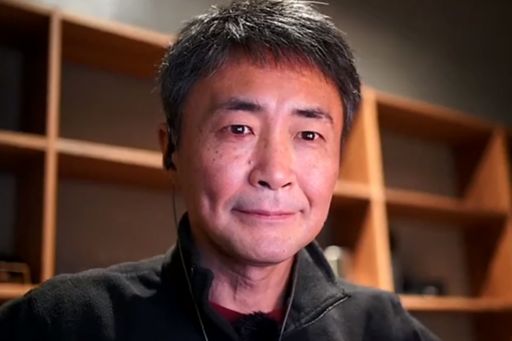
Yamauchi: Yes. Taking the example of voice-recognition technology, we can go beyond that to emotion analysis, and beyond that to human relationship analysis, and beyond that to human behavior analysis... and so on. I wonder if technology will evolve in such a way that we can understand the inner workings of human beings in a step-by-step manner from simply elemental reductive parts to the whole. I think this is a very interesting point.
This is similar to the study of AI as well. Will the accumulation of engineering methods lead to human beings? However, as humans are probably more holistic beings, this will not be easy. Nevertheless, let’s put this feasibility aside for now and fantasize about the possibilities.
People who are involved in machine learning say that “machine learning is faster than building a beautiful model.” This refers to the complexity of the mathematical model I mentioned earlier. I think this is correct from my experience. The function of the network layer that makes up AI is a black box but it’s like a magically useful function that makes the output look reasonable in relation to the input.
For instance, Google started to send out information in the form of the “COVID-19 Public Forecast” in November last year. Putting aside whether this can be called a conventional model, it predicts and announces the number of infection cases in the coming month by utilizing AI and big data that can be collected in real-time.
Looking at those numbers every day, the values themselves fluctuate quite a lot because of the reflexive nature of human beings... they change their behavior while looking at those numbers... and so I felt the numerical prediction numbers themselves triggered a general trend that clearly affected human behavior. Perhaps this is an example of the digital twin’s future prediction having a real impact on society.
Chatani: That’s true. A university professor who was involved in creating the Japanese version of the COVID-19 Public Forecast was posting a message that it is the result of predicting the future based on the current situation and that the actual result will change according to the behavior changes of people who saw this prediction.
Yamauchi: Now, I would like to take one of the phenomena that were obtained from this kind of incident and speculate about the question, “If it becomes possible to simulate a digital-twin-like society and future predictions can optimize a more efficient society, what will this mean?”
Sets of words and concepts like “freedom and equality, labor and politics, and democracy,” which our generation use as a matter of fact, are based on what has so far been constructed and cultivated from historically recorded written information. While a “library” is a typical form of information archive, it was the invention of typography in the 15th century that realized this, a Gutenberg galaxy, so to speak.
So, what will happen if we replace Gutenberg’s galaxy with a galaxy of networks and digital twins?
Information that is accumulated and referred to is based on archives such as “purchasing history, behavioral history, communication history, and pre-structured video and audio history.” We still do not know the answer to what it means to be based on such a huge amount of “non-literal” information.
If society is optimized based on the premise of “non-literal” archives, the result will be a change in people’s cognition, and even the replacement of conventional words and concept sets themselves.
Chatani: It will be like “What? What is freedom? What is democracy?”
Yamauchi: That’s right. I cannot imagine what this fundamental gap will mean. It’s a cliché but what I am worried about is the unintended side effects of such technology that provides us with convenience and comfort.
For instance, the recommendation engines, filters and social media used in web advertising, news and other content sites have resulted in the division of people, fake news and conspiracy theories in the real world. However, I don’t think the people who created these technologies had assumed such a future.
In reality, however, the moment technology is introduced, there are changes in society with unexpected events happening. We must be aware of the fact that technology may work in a negative way.
If, along the lines of the digital twin argument, there is the idea of modeling various things in the real world, simulating them and connecting them laterally, making them mutually available and predicting the future, we must be somewhat wary of the “devilish sound” that this entails.
In particular, the technology of video games, including our products, is something that children enjoy playing with and it has a major impact on many people. This makes me realize once again how very important it is to utilize this technology to make society better. I myself am also very careful about the “devilish sound.”
Chatani: What do you think is the single most important thing when looking at both the advantages and disadvantages of such technology and solving problems?
Yamauchi: This may seem bland but we are placing a great deal of importance on “diversity” at our company. Having diverse people in the same space is very important. At the same time, I think that problem setting should be as complex and difficult as possible. If problem setting is too simple, a smart person can easily figure out the solution. However, if problem setting is complex, it will no doubt require the knowledge of various people. I think this is what creative work is all about.
This is why I think it is necessary to create an environment where diverse people can live together by setting problems that are as difficult and complex as possible. An example of setting a difficult problem is asking “how can we make society better?” As we can see from this example, we will find many issues in the process of solving this problem and this is where we will need diverse opinions.
Only Technology Can Change Society and Make People Happy
Chatani: Indeed, while our lives will develop further with the advancement of technology, unknown issues, which we must confront, are also becoming evident. In this context, what kind of society do you want to open up in the near future, like 50 years from now?
Yamauchi: Well, I intend to continue Gran Turismo going forward, which will be in the same boat as the car culture and automobile industry. At the same time, I would like to also do something different.
I think that one of the missions of video games is to realize digital twins by connecting the real and digital worlds. On the other hand, I also think that “the reality that can be felt by humans may not necessarily be felt from something real,” and I intend to confront this question for sure. I would like to take on the challenge of creating a world where people feel more reality than the real thing, whether this is through Grand Turismo or not.
Chatani: I would very much like to witness that.
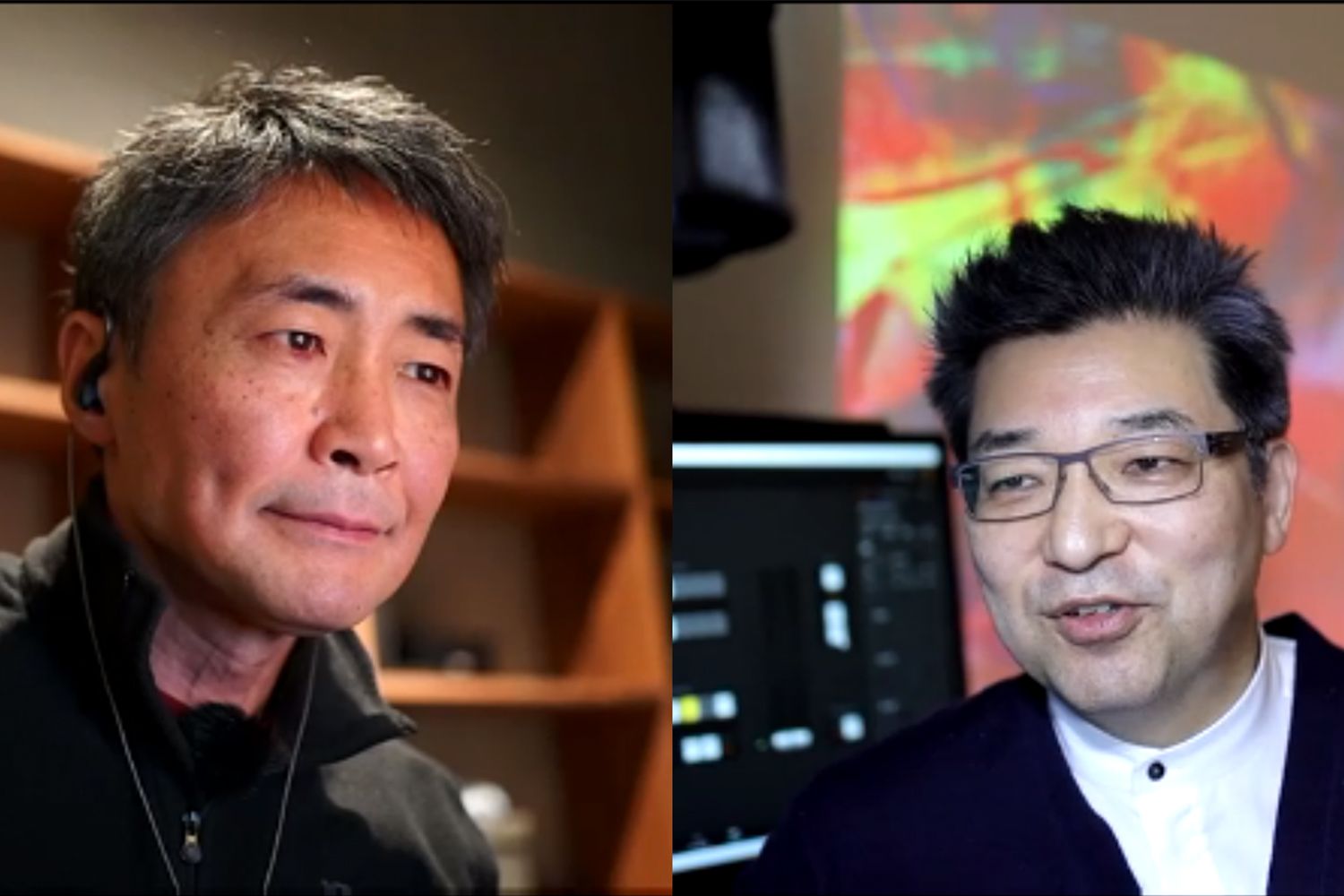
Yamauchi: I myself think that 50 years is a surprisingly short span of time. A future where concepts such as the digital twin and self-driving will be put to practical use will no doubt arrive.
I am a firm believer that only technology can change society and make people happy. That’s why I hope that our future will be one where technology is used to make people happy.
This, for instance, is associated with my origin. In the 1970s, mountain foothills and flat land, very much like the world of Totoro, extended in my hometown Kashiwa City. As I liked to collect insects and climb mountains from when I was a child, I used to spend all day in the forest or played in the river. I think these experiences are extremely important in life.
However, this is probably not possible in Japan now. In that case, why not create some kind of digital nature and convey the complexity and severeness of the world when we get out into nature and the feeling that things do not work out as one expects. This is what I am fantasizing about.
I would be happy if we could offer the experience we learned from nature when we were children such as “breathlessly observing what is occurring before our eyes, and making a hypothesis, understanding and acting based on this observation” through video games. I believe that this is my mission.
Profile of Interviewee
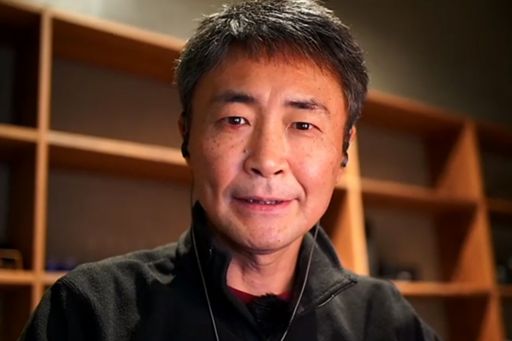
Kazunori Yamauchi
President of Polyphony Digital Inc.
Sony Interactive Entertainment Senior Vice President
Japanese game creator Kazunori Yamauchi is renowned for the Gran Turismo game series that has sold over 80 million units worldwide. Joining Sony Music Entertainment in 1992, he was involved in the startup of the Sony PlayStation. Transferring to Sony Computer Entertainment in 1994, he produced his first game title Motor Toon Grand Prix, and in 1997 the first of the Gran Turismo series which sold approximately 10.85 million units worldwide. Mr. Yamauchi went on to establish Polyphony Digital Inc. in 1998, and serves as its President. He has also served as a board member of the Japan Car of the Year awards since 2001.
Follow us on KPMG Ignition Tokyo LinkedIn for the latest news.
Connect with us
- Find office locations kpmg.findOfficeLocations
- kpmg.emailUs
- Social media @ KPMG kpmg.socialMedia



